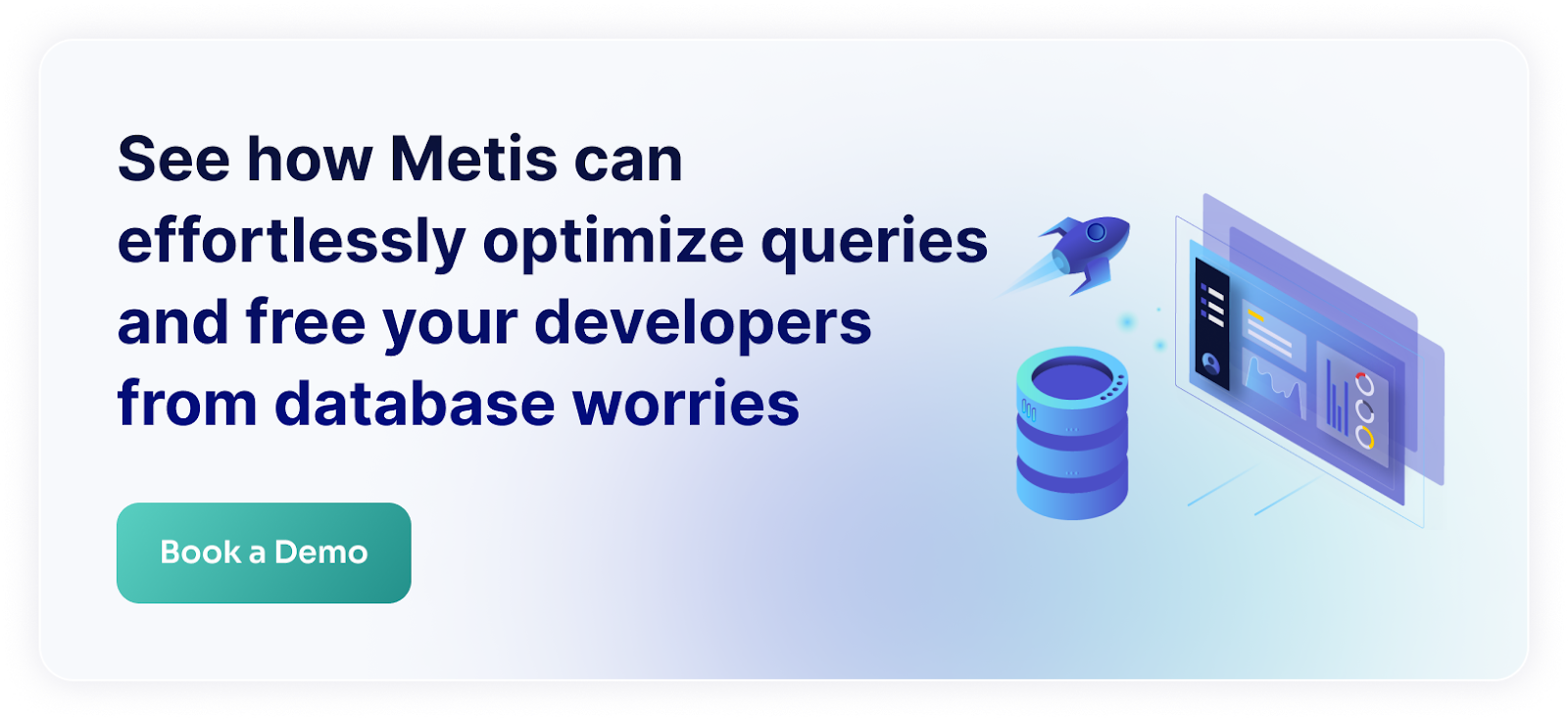If you've ever had to troubleshoot problems in a production database, you're likely aware of how difficult it can be. Numerous factors influence performance - such as execution plans, indexes, caching, I/O activity, extensions, and more. Understanding all of these aspects can be overwhelming and time-consuming. But what if this process could be automated? Imagine a tool that guides you through what went wrong and how to resolve it. Keep reading to learn how Metis provides exactly that and how it assists DevOps Engineers in their work.
Troubleshooting Can Be Easy
One of the biggest challenges in troubleshooting is the lack of effective tools. While monitoring systems flood us with data points, showing where the issue is and how it spreads through our systems, they don’t provide clarity on what’s actually happening. To troubleshoot effectively, we need better observability of our databases.
The key to successful troubleshooting lies in having the right tools.
When troubleshooting databases, we need tools that can link together every part of the software development lifecycle. This process begins in development environments, where we introduce code changes. We need tools that not only track these modifications but also show how they impact the production database, including schema migrations, to ensure performance isn’t degraded or data isn’t lost.
Databases are complex, with many components like indexes, tables, schemas, extensions, and dynamic configurations. It's not enough to just examine queries; we need tools that account for all aspects to properly assess performance issues.
Finally, the tools should go beyond just identifying problems - they should diagnose them. They must connect the dots to pinpoint where the issue originated, what caused it, and how to resolve it. Our role should be to simply verify the proposed fixes.
Metis Helps You Along The Way
Metis provides everything we discussed above. It starts with the development environments where Metis tracks the performance of all the queries:

Metis retrieves execution plans, applies them to the production database, and offers insights into potential performance bottlenecks and ways to optimize them. It also includes support for schema migrations:

In this way, Metis safeguards you from data loss and slow migrations that could bring your database down for an extended period. After deploying to production, Metis thoroughly analyzes every aspect of your database, providing schema insights and recommendations for improvements:

Metis provides insights about indexes and tracks their usage history:

Last but not least, Metis tracks live queries. It shows you the history and detects anomalies:

Metis shows you how to rewrite your queries to improve performance. You just need to take the suggestions and approve them in your codebase:

Metis is the only end-to-end database-oriented observability solution that lets you focus on your work and handles troubleshooting automatically.
Troubleshoot Efficiently With Metis
Troubleshooting doesn’t have to be difficult. With the right tools at your disposal, resolving issues becomes much simpler. It's about having visibility, understanding, and continually optimizing all the moving parts. Metis takes care of everything within your database - queries, indexes, configurations, schemas, tables - and provides actionable suggestions for improving query performance. Use Metis and put your database concerns to rest.







